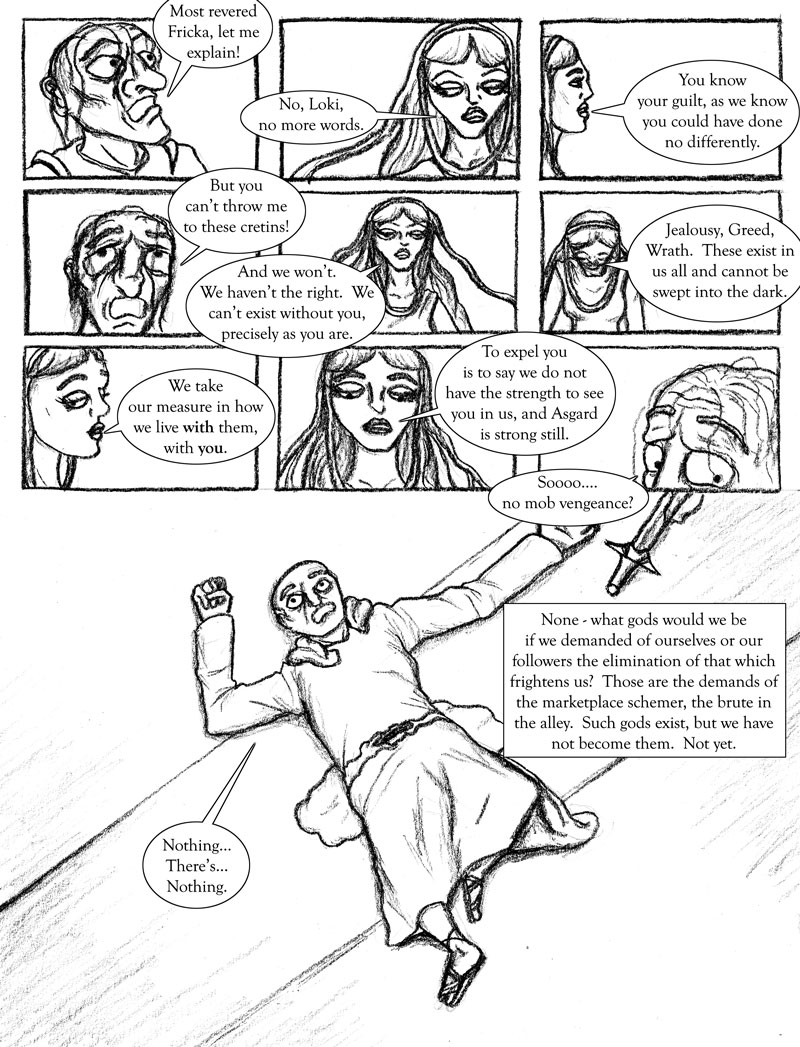|
Excersus XCI: Fear and Becoming




The Norse gods eventually would become precisely what Fricka preaches against here, once Loki's transgressions, which usually, through many twistings and unintended consequences, turned to good, turned murderous. This is the Loki writhing beneath the venom-dripping serpent. But until then, he got away with a remarkable amount of scheming, always ultimately being let back in to scheme another day.
Fricka's take on the Norse gods is largely how Nietzsche interpreted Goethe - as a being so healthy, so sure of himself and his creative power, that nothing could fundamentally harm him. You might think that this comes out the same as "Turn the other cheek," but the difference lies in Who and Why. One welcomes insult as something to feed their feelings of wrath towards humanity and thus draw them closer to the god who is going to ultimately punish everybody whom you can't and won't. The other doesn't feel the insult, because they are complete enough in themselves not to notice the machinations and petty displays of power of those who aren't. Nietzsche's most misinterpreted notion is that of the Will to Power - this is not a will to power Over Others - that is a trifling thing. It is power over yourself and your creative faculties, and the immunity from living one's life in resentment and juvenile Judgement fantasies (Tim LaHaye's entire creative output is based around this bit of juvenilia) that it brings. The trick, practically speaking, is to have that aspect of yourself while still welcoming attachment to other people that admits of the giving of part of yourself to another person - to be both above harm and still open to it seems well-nigh impossible and probably is, but if anybody out there has figured out the threading of that particular behavioro-philosophical needle, let me know!
- Count Dolby von Luckner
|